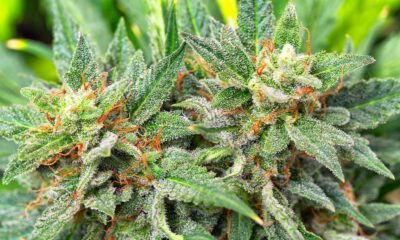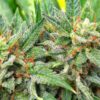
Joint Opinions
It’s Time to Tone Down the CBD Hype
Cannabidiol (CBD) has proven medical benefits. That doesn’t mean that CBD coffee is going to cure cancer.
It is unlikely that eating a piece of rope or inhaling the fumes from a burning canister of Dr. Bronner’s Soap would be mistaken for a “wellness treatment,” but in some cases, what’s happening in New York City and other places across the U.S. fallen under the spell of the “CBD craze” may not be too far removed.
The beauty of CBD, or cannabidiol — a compound found in the cannabis plant, which means that it’s found in both what the U.S. federal government classifies (and bans) as marijuana as well as in hemp, which can be legally grown in certain states and imported from abroad — is that it’s legal. Well — sort of legal.
“Marijuana” is the government’s official name for cannabis sativa consisting of 0.3 percent or more of THC. Anything with 0.3 percent or less can pass as hemp.
The federal Food and Drug Administration says that foodstuffs and dietary supplements with added CBD aren’t legal, and the DEA has in the past seized other CBD products sold in health-food stores. But we live in an America ruled by “wellness,” where science and proven benefits can take a back seat to folk medicine and bunk cures (particularly if they are sold to us by an “effervescent’ celebrity).
In this environment, CBD-infused products have flooded into markets where medical and recreational cannabis is either banned outright or hard to acquire.
New York is a good example. “Yes, We Have CBD!” shouts signs hung in the windows of Brooklyn pharmacies, as the New Yorker’s Rachel Syme wrote. CBD’s allure is obvious: the stuff is “anti-inflammatory, neuro-protective, anti-spasmodic, anti-depressive, anti-psychotic, anti-tumoral, anti-anxiety, antioxidant, mood-boosting,” claimed a sandwich board set outside a juice shop.
In other words, “marketers are promoting CBD to treat everything under the sun,” as Mary Chris Jaklevic noted at HealthNewsReview.org.
They are doing so — and continuing to do so — despite the FDA’s best efforts to get them to stop, because they are lying about what CBD is and what it does.
Last fall, several companies marketing CBD as a cure-all were officially warned to stop. And as ProjectCBD pointed out recently, 69 percent of 85 products touting their CBD content mislabeled the amount actually found in the product.
That means enough consumers had been hoodwinked, which means it’s probably a good time for us to relax about CBD for a moment, and figure out how to filter some signal out of all the noise.
“The CBD craze is a classic example of how media and marketing hype can build around a new idea,” University of Alberta law professor Tim Caulfield told Jaklevic. “CBD has gained traction in popular culture — in part due to the broader discussion about the legalization of cannabis.”
To return to the above example: Rope is made from hemp. Soap is also made from hemp — industrial hemp. They both probably have some CBD. That does not make them medical cannabis, and it does not make them wellness products.
What’s the source of the CBD that’s being rubbed onto your skin, dropped onto your tongue, infused with your coffee and sold to you (illegally) as a cure for cancer and Alzheimer’s? If the seller can’t say, it’s likely industrial hemp — which means that it has limited CBD. Industrial hemp may also have been produced overseas, in countries or areas with less-strict standards about CBD content and contaminants used in agriculture such as heavy metals.
Sonoma County-based Project CBD has 10 general tips for what products to try out and which to avoid. If something is labeled “pure CBD,” it is likely made from a distillate that filters out other cannabis components beyond THC. If a product is making explicit health claims, it is violating FDA policies.
Above all, temper your expectations. Some CBD in your coffee might make you feel good. Some CBD oil after yoga might make you feel great! But it is highly, highly unlikely to solve your cancer or your Alzheimer’s.
CBD is not magic, but it is good. As usual, it’s been hijacked by unscrupulous types capitalizing on the public’s constant appetite for the latest big thing. And that is bad.
TELL US, have you tried CBD?


























